Four Horsemen of the Apocalypse, The (1921)
“And when the sun rises in a few hours the world will behold the Four Horsemen — enemies of mankind!”
|
Synopsis: |
|
Genres, Themes, Actors, and Directors:
Review: His early, sultry tango scenes — not part of the original novel — are so sensual and evocative that they made the dance a hit craze for a while. As far as the story goes, it’s a fairly standard overblown saga of forbidden romance, family feuds, and the inevitable tragedy of war — with Germans emerging as the definite baddies of the bunch (it was released, after all, just three years after the end of World War I, when sentiments were still raw). Meanwhile, the integration of a “mystical” element into the story — embodied by a wacky neighbor (Nigel De Brulier) who foretells the coming of the “four horsemen of the Apocalypse” (hence the film’s title) — is simply silly and heavy-handed. But Ingram has a fine directorial hand, framing his scenes carefully and adding unique visual touches — many of which are quite memorable (see stills below); and the “DeMille”-ian amounts of money spent on the production seem to have been put to good use, given Ingram’s ability to effectively present the devastation of war. Remade by Vincente Minnelli (!) in 1962, with Glenn Ford (!) starring as Julio. Redeeming Qualities and Moments: Must See? Categories
Links: |
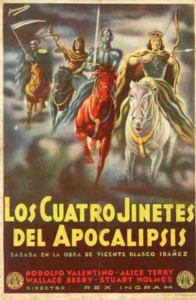
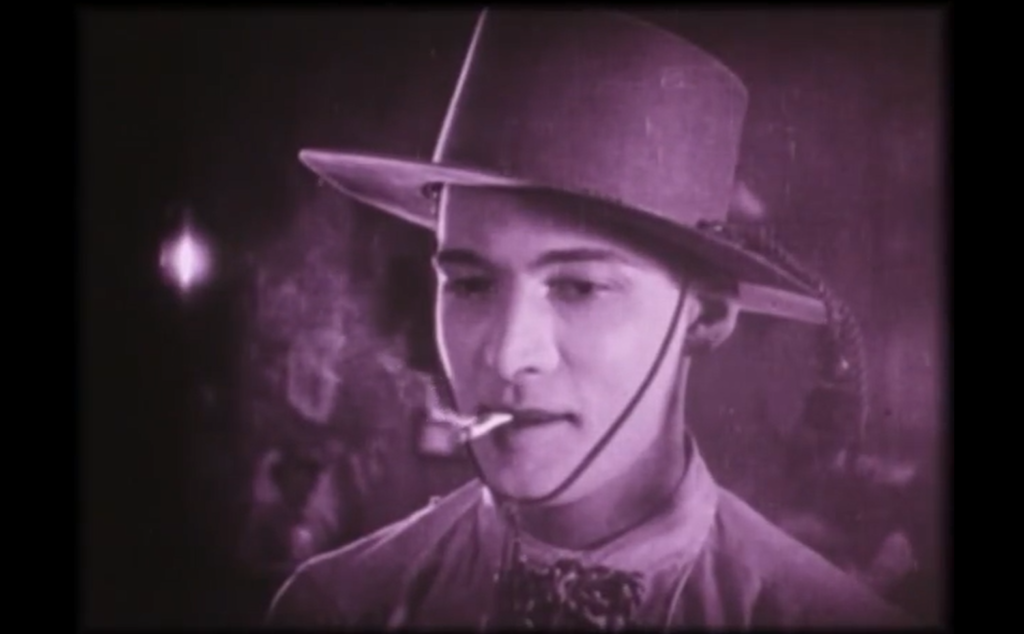
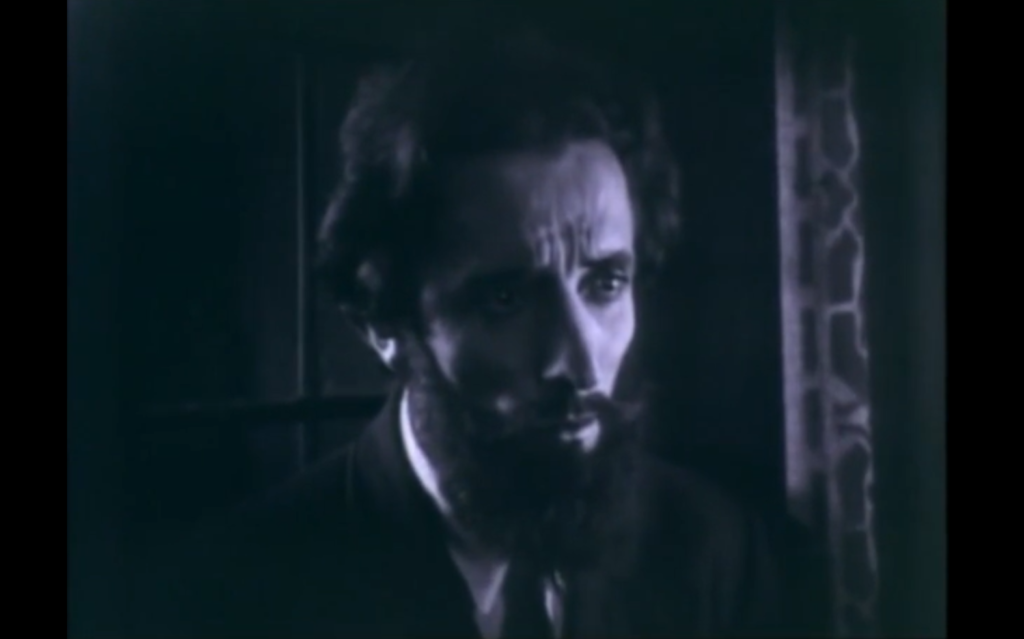
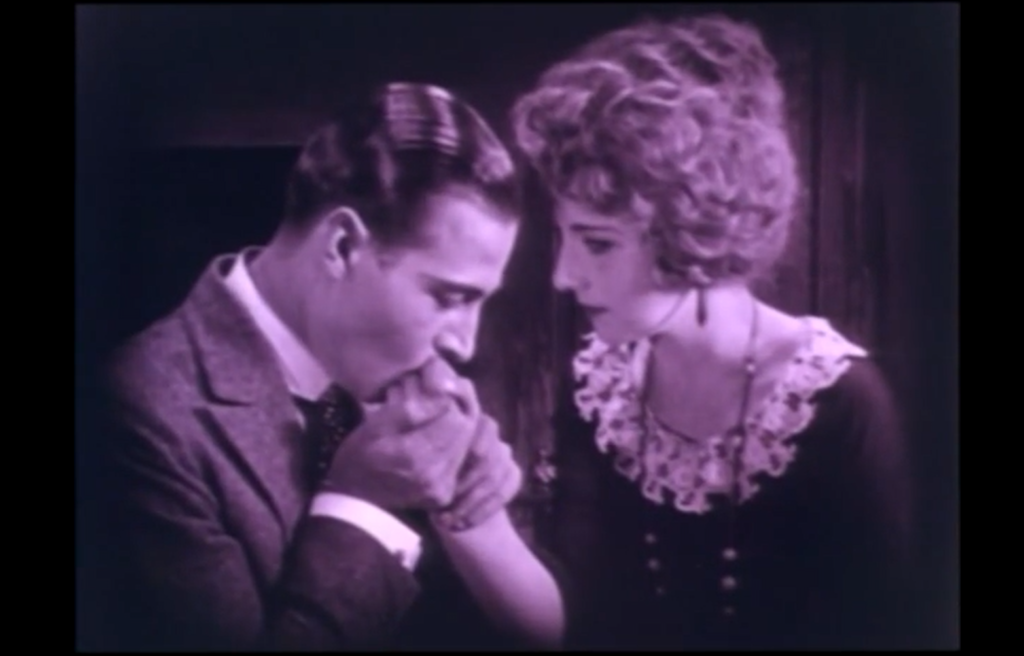
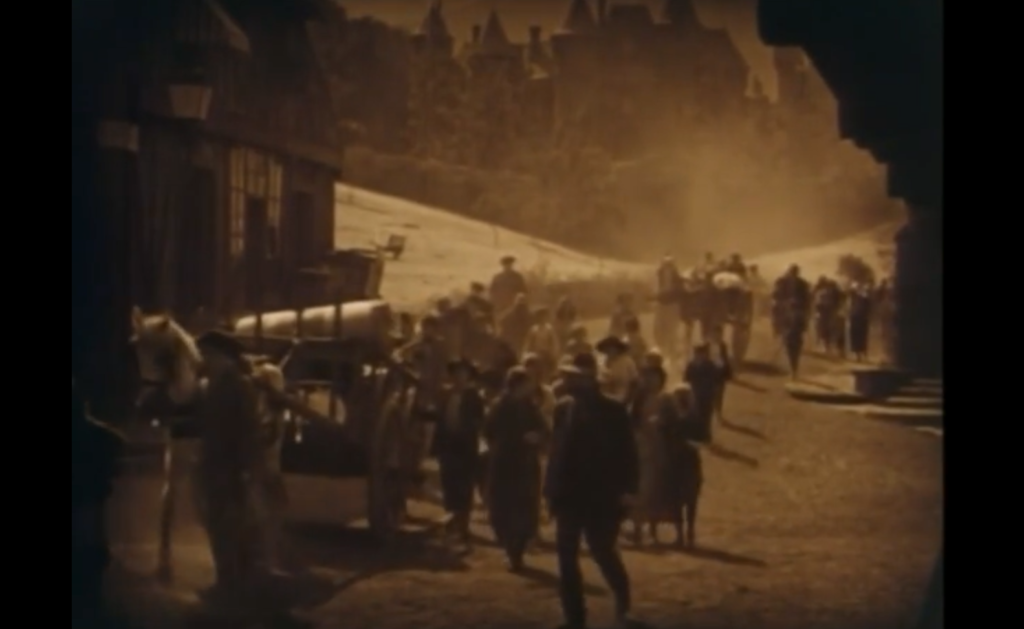
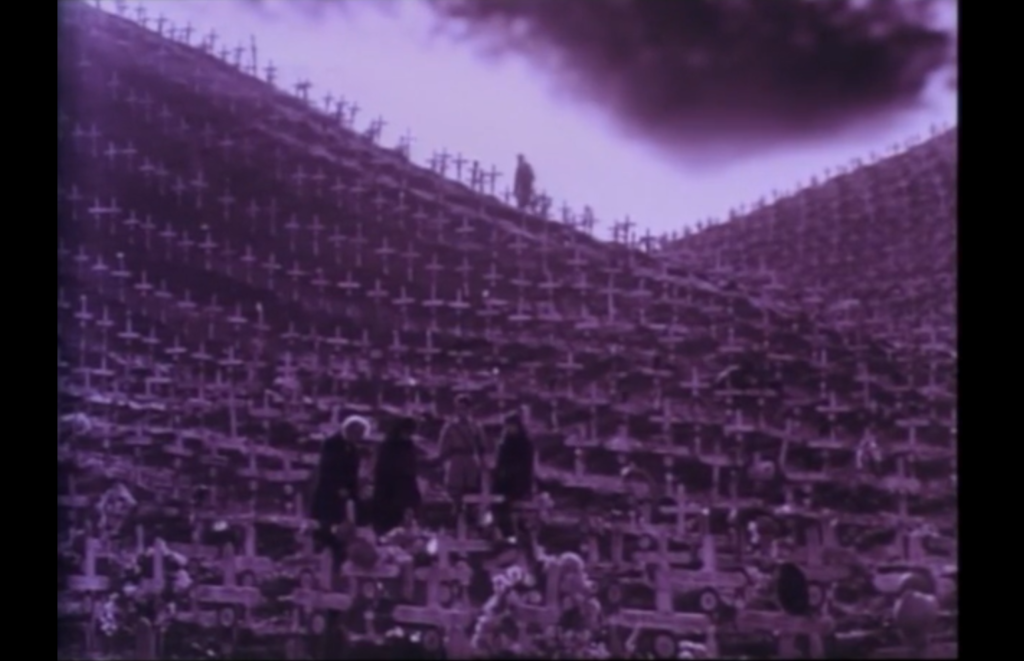
One thought on “Four Horsemen of the Apocalypse, The (1921)”
First viewing.
In spite of its place in cinema history, this isn’t a must – mainly because (as pointed out) “it’s a fairly standard overblown saga” which has a difficult time being saved by efforts to make it more than that. Yes, it has been competently directed and generally nicely produced but, as befits the overall production, the acting is rather standard as well. Since I know little of Valentino’s work, I had thought perhaps that this epic production might show him in a more impressive light – but he’s not called on to be much more than a screen ‘presence’. (It would be interesting to me if I were to come across a film of his which caused me to sit up and take real notice of him – but that remains to be seen. So far, I’m not swooning.)
The “mystical” aspect of the film, in general, does seem a bit heavy (and is it really necessary, or is it there to add an element of ‘importance’?). I’m aware that the meaning of ‘apocalypse’ can include ‘widespread devastation’, but my understanding (at least) of the Book of Revelation is that it’s a prophecy of ultimate destruction – something apart from prior chaos. (I suppose the ‘wacky neighbor’ is actually meant to be Christ returning to Earth – note his behavior near the film’s end – but, again, all this tacked-on spirituality just appears out-of-place.)
I would not doubt that – given the film’s massive popularity at the time – audiences felt they were seeing something truly special. In 1920, they probably were. Unfortunately, it doesn’t seem as though ‘Four Horsemen…’ has kept a voice that can speak outside its era.